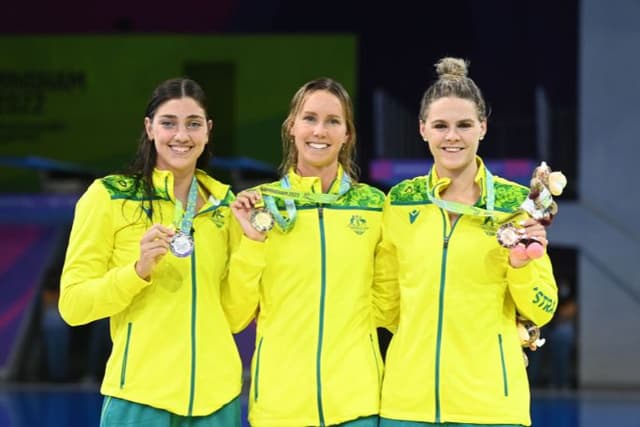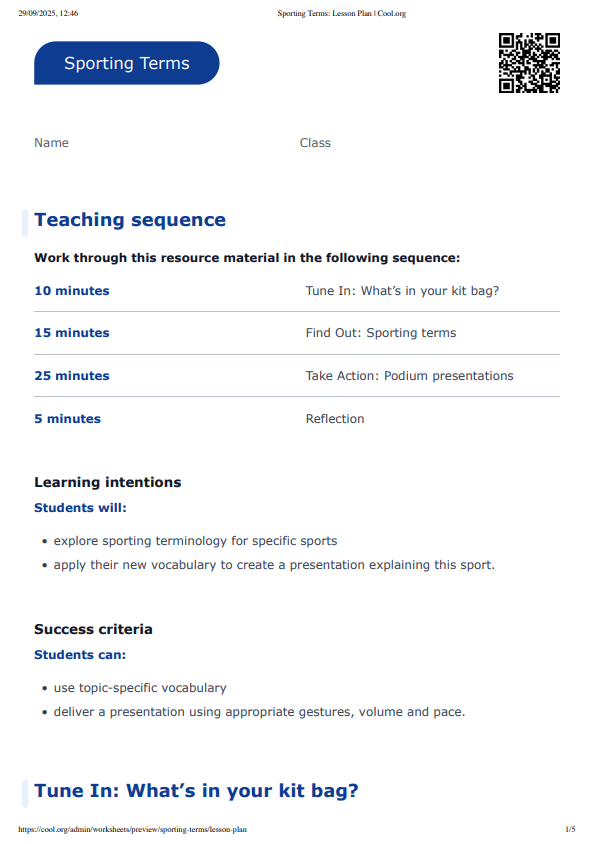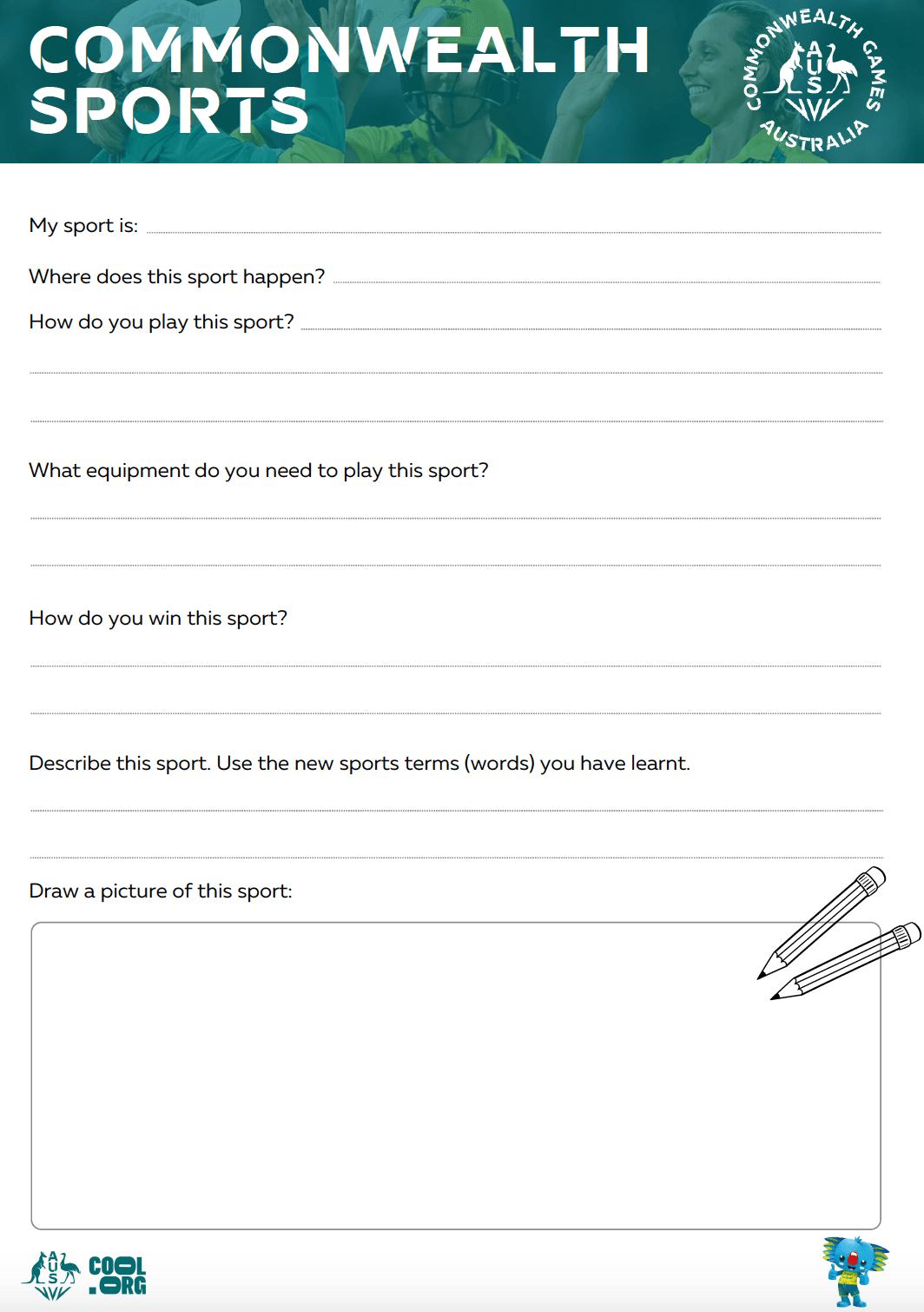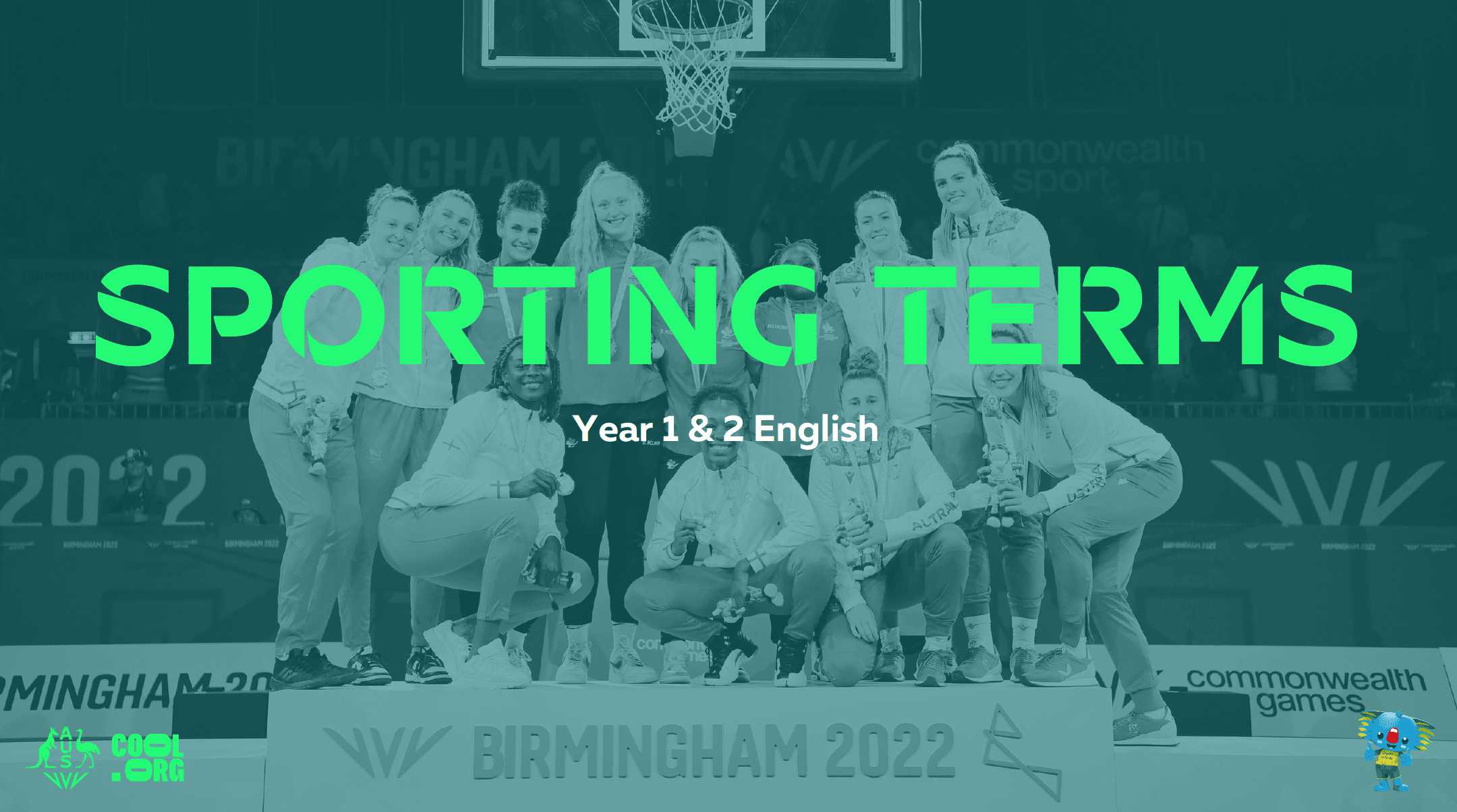Learning intentions
Students will:
- explore sporting terminology for specific sports
- apply their new vocabulary to create a presentation explaining this sport.
Success criteria
Students can:
- use topic-specific vocabulary
- deliver a presentation using appropriate gestures, volume and pace.



